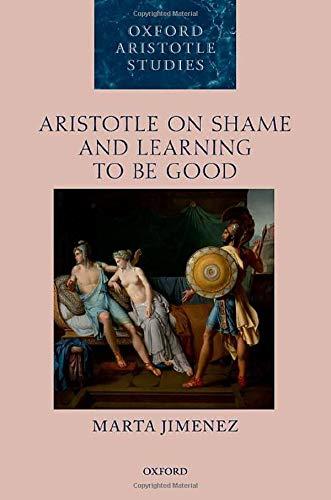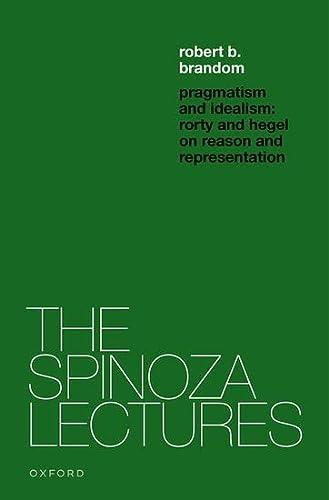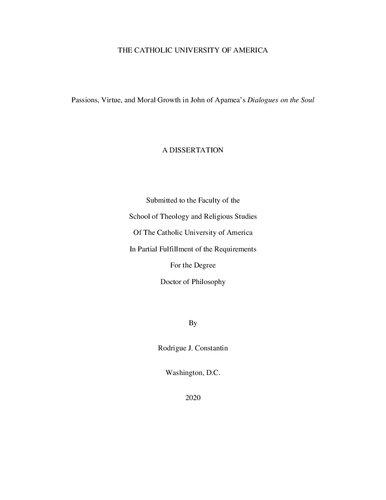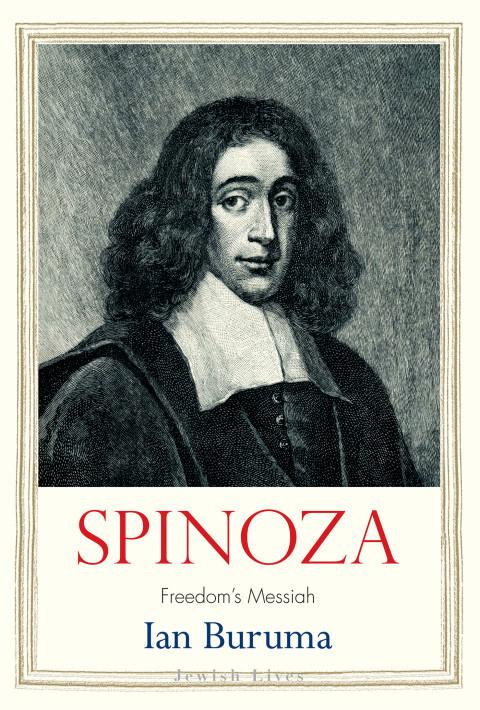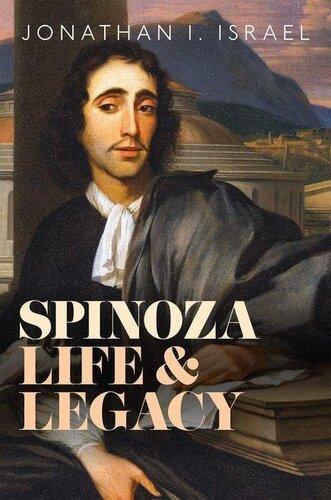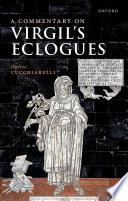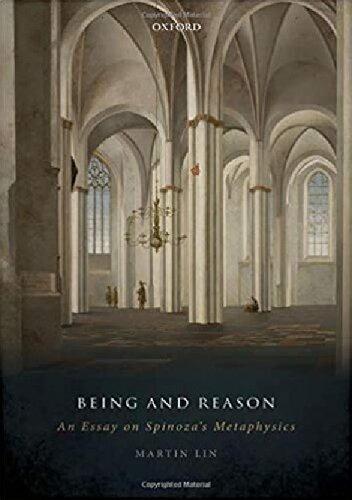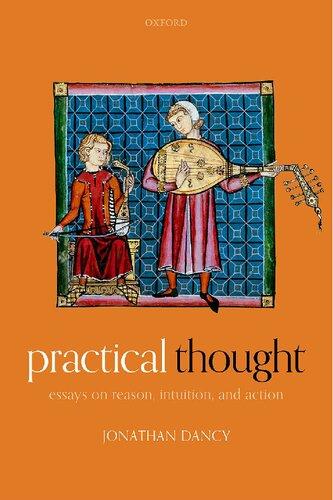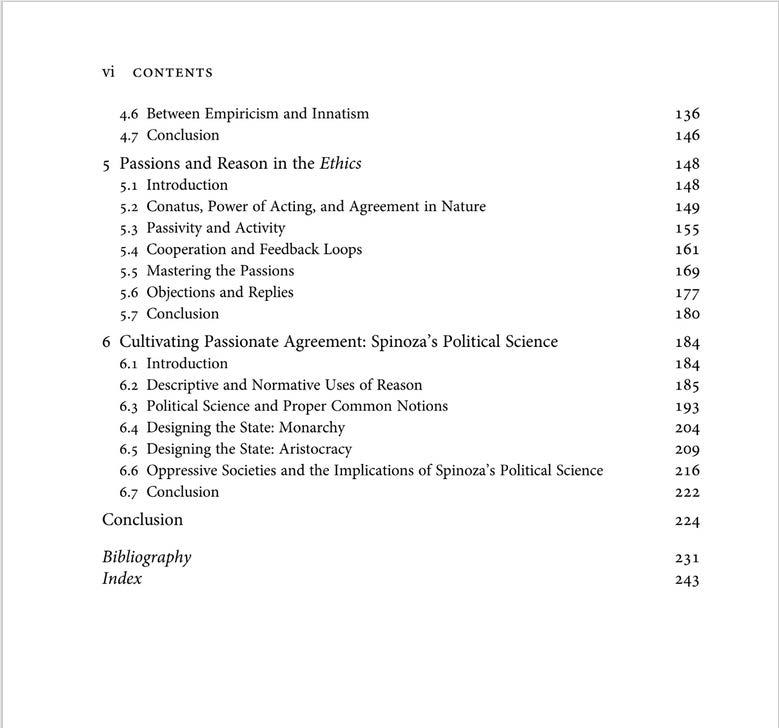SpinozaonReason, Passions,andthe SupremeGood
AndreaSangiacomo
GreatClarendonStreet,Oxford, ,
UnitedKingdom
OxfordUniversityPressisadepartmentoftheUniversityofOxford. ItfurtherstheUniversity’sobjectiveofexcellenceinresearch,scholarship, andeducationbypublishingworldwide.Oxfordisaregisteredtrademarkof OxfordUniversityPressintheUKandincertainothercountries
©AndreaSangiacomo
Themoralrightsoftheauthorhavebeenasserted
FirstEditionpublishedin
Impression:
Allrightsreserved.Nopartofthispublicationmaybereproduced,storedin aretrievalsystem,ortransmitted,inanyformorbyanymeans,withoutthe priorpermissioninwritingofOxfordUniversityPress,orasexpresslypermitted bylaw,bylicenceorundertermsagreedwiththeappropriatereprographics rightsorganization.Enquiriesconcerningreproductionoutsidethescopeofthe aboveshouldbesenttotheRightsDepartment,OxfordUniversityPress,atthe addressabove
Youmustnotcirculatethisworkinanyotherform andyoumustimposethissameconditiononanyacquirer
PublishedintheUnitedStatesofAmericabyOxfordUniversityPress MadisonAvenue,NewYork,NY ,UnitedStatesofAmerica
BritishLibraryCataloguinginPublicationData
Dataavailable
LibraryofCongressControlNumber:
ISBN
DOI:
PrintedandboundinGreatBritainby ClaysLtd,ElcografS.p.A.
LinkstothirdpartywebsitesareprovidedbyOxfordingoodfaithand forinformationonly.Oxforddisclaimsanyresponsibilityforthematerials containedinanythirdpartywebsitereferencedinthiswork.
Acknowledgements
List ofAbbreviations
Introduction
Li Theme
1.2 Approach
l.3 Contents
1 The Path Towards the Supreme Good in the Treatise on the Emendation
1.1 Introduction
1.2 The Supreme Good
1.3 Social Factors and the Supreme Good
1.4 What Are the Passions?
1.5 An Intellectual Virtuous Circle
1.6 Truth and Certainty
1.7 Conclusion
2 Passions and Reason in the Short Treatise
2.1 Intrnduction
2.2 Passions and Inadequate Ideas
2.3 The Passive Nature of the Intellect
2,4 The Epistemic Remedy for the Passions
2.5 The Problem ofSuperstition
2.6 The Limits ofSpinoza's Early Ethics
2.7 Conclusion
3 A Passionate Path Towards the Supreme Good in the Theological-Political Treatise
3.1 Introduction
3.2 Vicious and Virtuous Circles
3.3 The Problem of Salvation
3.4 Obedience as a Means of Achieving the Supreme Good
3.5 The Virtue of the Prophets
3.6 The instrumentalist Reading and the Scholarly Debate
3.7 Conclusion
4 Common Notions in the Ethics
4.1 Introduction
4.2 The Problem of the Origin of Reason
4.3 Mereology, Laws, and Agreement in Nature
4.4 Agreement in Nature and Common Notions
4.5 Universal and Proper Common Notions
Acknowledgements
Theintuitionattheheartofthisbookcametomeduringthesummerof .Iwas finishingmyPhDdissertationabouttheevolutionofSpinoza’ s conatus doctrinefrom theearlywritingstothe Ethics,andIfeltthatsomethingwasmissinginmy discussion.IwaspointingtoamajorchangeinSpinoza’sthought,butIwasnot explaining why Spinozamadethischange.Onemorning,whileIwasoutforarunon thehillsthatsurroundmyhometown,Genoa(Italy),IrealizedthatSpinozamust havebeenawarethatwithoutthe conatus doctrinehecouldnothaveexplainedthe phenomenonofreligioussuperstition.Eventually,Idecidednottoaddressthisissue inmydissertationnorinthebookthatissuedfromthat(L’essenzadelcorpo,G.Olms, ).Afewmonthslater,inApril ,Iarrivedforthe firsttimeinSpinoza’ s homeland,theNetherlands,attheUniversityofGroningen.There,Istartedplanning anewbook thisbook.Sincethen,Ihaveexploredtheimplicationsoftheintuition whichIhadthatmorning.
Icouldnothavewrittenthisbookwithouttheatmosphereofmutualrespect, esteem,andphilosophicalfriendshipwithwhichIwaswelcomedattheFacultyof PhilosophyatGroningen,andattheDepartmentofHistoryofPhilosophyin particular.Thatatmospheregrewstrongerovertheyearswhileourgroupconsolidatedandexpanded.IamparticularlyindebtedtoMartinLenz,whohadsufficient trustinmetoletmecometoGroningenandwhothensupportedmeduringall subsequentstagesofmycareer.Iamalsodeeplygratefultoallmycolleaguesat Groningen,withwhomIdiscussedpartsofthisbookatdifferentstagesofthewriting process.Iwouldliketothank,inparticular,HanThomasAdriaenssen,Sanderde Boer,BiancaBosman,EddoEvink,LauraGeorgescu,LodiNauta,TamerNawar, DetlevPätzold,andDoinaRusufortheirextremelyhelpfulfeedbackandenriching exchanges,andforallthetimewespenttogetherimmergedinphilosophicaland historicaldiscussions.IamgratefultoAureliaArmstrong,HermandeDijn,Keith Green,HelenHattab,KarolinaHübner,MattKisner,ObertoMarrama,OhadNachtomy,MichaeldellaRocca,EmilyThomas,andFrancescoTotoforveryhelpful commentsonpreviousversionsofseveralpartsofthisbook.Iamalsogratefultoa numberofanonymousrefereesforbothpointingouttheweaknessesofprevious versionsofmymanuscriptandforprovidingconstructivesuggestionstodevelopits strengthsfurther.
InChapter ,Section .,Ihaverewrittensomematerialsthatoriginallyappeared inmypaper ‘FixingDescartes:ethicalintellectualisminSpinoza’searlywritings’ (SouthernJournalofPhilosophy, (), , –,Wiley–Blackwell).In Chapter ,Section .,Ihavereworkedpartsofmypaper ‘Beforetheconatus doctrine:Spinoza’scorrespondencewithWillemvanBlijenbergh(Archivfür GeschichtederPhilosophie, (), , –,DeGruyter).Somepartsof Chapter arederivedfromthelastsectionofmypaper ‘Theontologyofdetermination:FromDescartestoSpinoza’ (ScienceinContext , (), –, ,© CambridgeUniversityPress,reproducedwithpermission).Iwouldliketothank
theeditorsandpublishersofthesejournalsforallowingmetoreworkthesematerials inthisbook.
Iwrotethisbookacrosstworesearchprojects,bothbasedattheFacultyof PhilosophyatGroningen.IbeganthebookwhenIwasapostdocinMartinLenz’ s project ‘NaturalismandteleologyinSpinoza’sphilosophy’ (–),fundedbythe FritzThyssenStiftung.However,Iwroteandrewrotethemostsubstantialpartsofit duringmyownNWOveniresearchproject ‘Occasionalismandthesecularizationof earlymodernscience:Understandingthedismissalofdivineactionduringthe scientificrevolution’ (–).Iamgratefultobothfundingagenciesforhaving contributedsubstantiallytosupportmyresearchduringtheseyears.
Whenthebookwasalreadyinthemaking,Istumbleduponadetailofthefrescoes ‘StoriesofUlysses’ byPellegrinoTibaldiinPalazzoPoggi(Bologna, -).Inone ofhisscenes,TibaldidepictedaparticularlyintenseAeolus,whichtomeappearedas aninspiringimageoftheprophetsthatSpinozadiscussedinhis Theological-Political Treatise .IsentthispicturetoThomasColbourne,whotookinspirationfromitand producedhisownartisticinterpretationofaSpinozisticprophet,whichisnowonthe coverofthisbook.AsThomashimselfcaptionshispainting: ‘restingandinmotion,a figurecomprisedoflines,planes,andbodiesisarrangedandrearranged,embodying particularityandexpressingdivinity.’ IamverythankfultoThomasforhisgenerosityinsharinghisartwork.
Finally,IwouldliketodedicatethisbooktoDanielaBenvenuti.Danielawasmy philosophyteacherinhighschool,anditisthankstoherthatIdecidedtodevote mylifetophilosophy.WhenIwas finishingmybachelor’sdegreesheinsistedthat IshouldstudySpinozaandthatIwouldlikeit.AlthoughIwasratherscepticalat first,IgaveSpinozaatry.Danielafollowedmypathallalong,andsheconstantly encouragedmewithwitandpragmatism.Ihopethatthisbookwillserveasawitness tothegratitudeIshallalwayshaveforwhatIlearnedandwillcontinuetolearn fromher.
September
Groningen
ListofAbbreviations
Spinoza’sworks
TIE Tractatusdeintellectusemendatione,inB.Spinoza, OeuvresI,Premiers écrits,texteétabliparF.Mignini.Paris:Puf, ,pp. –.English translationinC
KV KorteVerhandelingvanGoddeMenschendeszelvswelstand,in B.Spinoza, OeuvresI,Premiersécrits,texteétabliparF.Mignini.Paris: Puf, ,pp. –.EnglishtranslationinC.
PPC/CM PrincipiaPhilosophiaeCartesianae and CogitataMetaphysica,in Spinoza Opera,imAuftragderHeidelbergAkademiedesWissenschaften,hrsg. vonC.Gebhardt, vols.Heidelberg:CarlWinter, .EnglishtranslationinC.
TTP TractatusTheologico-Politicus/TraitéThéologico-Politique,texteétabli parF.Akkerman,traductionetnotesparJ.LagréeetP.F.Moreau.Paris: Puf, .EnglishtranslationinB.Spinoza, Theological-PoliticalTreatise,translatedbyMichaelSilverthorneandJonathanIsrael,editedby JonathanIsrael.Cambridge:CambridgeUniversityPress, .
E Ethicamoregeometricodemonstrata,in SpinozaOpera,imAuftragder HeidelbergAkademiedesWissenschaften,hrsg.vonC.Gebhardt, vols. Heidelberg:CarlWinter, .EnglishtranslationinC.
TP TractactusPoliticus/TraitéPolitique,texteétabliparO.Proietti,traduction,introduction,notes,glossaires,indexetbibliographiespar C.Ramond,noticedeP.F.MoreausurlaréceptionduTP,notes d’A.Matheron.Paris:Puf, .EnglishtranslationinC
Ep Epistolae,in SpinozaOpera,imAuftragderHeidelbergAkademiedes Wissenschaften,hrsg.vonC.Gebhardt, vols.Heidelberg:CarlWinter, .EnglishtranslationinC andC.
C TheCollectedWorksofSpinoza,vol. ,translatedandeditedbyEdwin Curley.PrincetonandOxford:PrincetonUniversityPress,
C TheCollectedWorksofSpinoza,vol. ,translatedandeditedbyEdwin Curley.PrincetonandOxford:PrincetonUniversityPress, .
Internalabbreviations
ADdefinitionsofaffects(E) adnannotation appappendix axaxiom ccorollary
defde finition
dialdialogue(KV)
demdemonstration
explexplanation
llemma
pproposition
postpostulate
prefpreface
sScholium
InreferencestoSpinoza’sworks,the firstnumberafterthetitleabbreviationrefers tothepartorchapterofthework,andthesubsequentnumberreferstoparagraphs orsectionswithinthatchapterorpart.Forexample, ‘TP, ’ refersto Tractatus Politicus ,chapter ,section .InthecaseofTIEandKV,numbersprecededby ‘§’ indicatesectionnumbers.Forexample, ‘KV, ,§ ’ refersto KorteVerhandeling, part ,chapter ,section .
Jevousvoudraisencorevoirdéfinirlespassions,pourlesbienconnaître;carceux quilesnommentperturbationsdel’âme,mepersuaderaientqueleurforcene consistequ’àéblouiretsoumettrelaraison,sil’expériencenememontraitqu’ily enaquinousportentauxactionsraisonnables.
ElisabethtoDescartes, September
Nousnecherchonsàconnaîtrequeparcequenousdésironsdejouir,etiln’est paspossibledeconcevoirpourquoiceluiquin’auraitnidésirsnicraintesse donneraitlapeinederaisonner.
Jean-JacquesRousseau, Discourssurl’origineetlesfondements desinégalitésparmileshommes,I,sect.
Introduction
I. Theme
Inhis SecondDiscourse ,Jean-JacquesRousseauclaims: ‘weseektoknowbecausewe desiretoenjoy,anditisnotpossibletoconceivewhysomeonewhohadneither desiresnorfearswouldtakethetroubletoreason.’¹Thisstatementisparticularly provocativebecause,sinceantiquity,reasonhasbeenoftenconceivedassomehow contrarytodesiresandpassions.Farfromsupportingreason,passionsanddesires haveoftenbeenpresentedassomethingthatshouldberestrainedandmastered throughthepowerofrationalknowledge.Infact,whetherandhowpassionscould possiblyaidrationalityisnotobviousatall.Thisbookdealswiththewayinwhich Spinozastruggledwiththisissue.Throughouthiscareer,SpinozaconsistentlyidentifiedtheSupremeGoodwithknowledge,andmorespecificallywithknowledgeof God.However,oneofthemostpressingethicalissuesforSpinozawasinexplaining howindividualscanreachtheSupremeGood.Spinoza’sapproachtothisissue changedsignificantlyovertime.
InSpinoza’searlywritings(especiallyinthe TreatiseontheEmendationofthe Intellect andthe ShortTreatiseonGod,ManandhisWell-Being),theepistemicselfsufficiencyofthehumanmindisthecornerstoneofhissolutiontotheproblemof howtoachievetheSupremeGood.By ‘epistemicself-sufficiency’ Imeanthatthe mindisequippedbynaturewiththeappropriateepistemicresourcesnecessaryto reachtheSupremeGood.Spinozaendorsesaformofinnatism,accordingtowhich thehumanmindisendowedwithtrueadequateideas(includingatrueadequateidea ofGod).Themindcanbuildonthisinnateknowledgetoresistthepowerofthe passionsanddevoteitselftoreachandenjoytheSupremeGood.Epistemicselfsufficiencydoes not requirethatindividualsseektheSupremeGoodinisolationor endorsesomeformofasceticlife.Appropriatesocialconditionsmaysupportthe individual’spursuitoftheSupremeGood.Thefactthatotherindividualssharethe SupremeGoodsomehowamplifiesthehappinessthatresultsfromitsachievement. However,theachievementoftheSupremeGooddoesnotnecessarilyoressentially dependonthesesocialfactors,whichcanplayonlyafacilitatingroleintheethical enterprisebyremovingoravoidingimpedimentsonthepathstowardstheSupreme Good(forexample,bypreventingorcounteringthepotentialdisruptiveanddistractingforceofthepassionsthatarisefromthecommonwayofliving). ¹Rousseau , SecondDiscourse
Despitethisallegedepistemicself-suf fi ciencyofthemind,actualhuman individualsoften fail toachievetheSupremeGood.Forinstance,humanbeings donotseemcapableofacquiringandd irectingthemselvesonthebasisofa knowledgeofGodthatwouldcount asadequateaccordingtoSpinoza ’ sstandards.Therichphenomenologyofr eligioussuperstitionexempli fi esthescenario inwhich, despite themind ’ sinnateepistemicresources,individualsseemunable toprogressinthedirectionthatSpinoza ’ searlywritingsprescribe.Inthiscontext itbecomesdif fi culttoaccountforthisfailure,giventhatSpinoza ’ scommitment tothemind ’ sepistemicself-suf fi ciencyentailsthatthehumanmindhasinitself allthatisneededtosucceedinthepursuitoftheSupremeGood.Imaintainthat Spinozadirectlyconfrontedthisproblemandthathislaterworkstestifyashift towardsadifferentapproach.
Inhislaterwritings(the Theological-PoliticalTreatise,the Ethics,andthe Political Treatise ),Spinozaemphasizeshowcertainformsofsocialcooperationarenecessarily requiredforthehumanmindtodevelopitspowerofformingadequateideasand progresstowardstheSupremeGood.Inthiscontext,Spinozasignificantlyrefineshis accountof reason orknowledgeofthesecondkind,whichreceivedalessdeveloped treatmentandhadalessprominentroleintheearlywritings.Startingfromthe Ethics,themind’sabilitytoreasonisbuiltuponanewdoctrineof ‘commonnotions’ , whichIinterpretasthementalcounterpartoftheindividual’scausalinteractions basedonagreementinnaturewithexternalcauses.Appropriateexternalconditioningsandevencertainpassionscancreatepositivecausalfeedbackloopsableto supporttheindividual’sstrivingtowardstheSupremeGood.Icontendthatthis newaccountofreasonbecomesthecornerstoneofSpinoza’smatureethicalproject andofhislaterpoliticalscience.
Thisbookthusdefendstwoconnectedclaims.First,fromanhistoricalpointof view,IarguethatSpinoza’smoralphilosophyevolvedsignificantlyovertime.Inhis early writings,Spinoza’saccountoftheethicalprogresstowardstheSupremeGood reliesmostlyontheepistemicself-sufficiencyofthemind.Inhismaturewritings, however,theemphasisshiftssignificantlytowardsthemind’sneedtorelyon appropriateformsofsocialcooperationwithothers.IfconfrontedwithRousseau’ s statementquotedatthebeginningofthisIntroduction,Iwouldexpectthattheearly Spinozawouldhaverejecteditoutright,whilethelaterSpinozawouldhavesympathizedwithit.
Second,fromamorephilosophicalpointofview,thereadingofSpinoza’slater philosophywhichIdefendoutlinesanewwayofunderstandingtherelationship betweenreason,passions,andsocialembeddedness.ThemostcommonunderstandingofSpinoza’saccountofreasonandactivityisbuiltontheequationbetween rationality,activity,andself-sufficiencyontheonehand,andinadequateknowledge, passivity,andexternaldeterminationsontheother.Rationality(whichexpressesthe humanmind’spowerofthinkingadequately)istherebyseentobearesultofthe individual’sepistemicself-sufficiency.Toputitbluntly:inordertoberational,one needstothinkindependently.Myreadingofthe Ethics departsfromthisassumption. Onthisreading,thehumanmind couldnot formadequateideasofreasonifitwere notdeterminedbycausalinteractionsbasedonagreementinnaturebetweenthe individualandtheexternalcausesthatdetermineit.Igrantthatbeing passive means
beingdeterminedbyexternalcauses.AndyetIdenythatwhenoneisdeterminedby externalcausestheresultwillnecessarilybeinadequateknowledgeandpassivity.
Ilabelthisinterpretationa ‘cooperative’ accountofreason.Asdefinedinthe Ethics,reasonisthementalexpressionofthewayinwhichthehumanbodyinteracts withexternalcausesonthebasisofsomedegreeofagreementinnaturewiththem. Sinceagreementinnaturecomesindegrees,reasonalsocomesindegrees.The greatertheagreement,thegreaterthepowerofreasontoadequatelyunderstand universalfeaturesaswellasmorespecifictraitsoftheinteractingthings.Inthecase ofhumanbeings,certainkindsofsocialcooperationarecrucialforthedevelopment ofreason.Insofaraspassionsleadtosupportorfostercooperation,theycanbetruly conducivetotheimprovementofrationality.Thisviewentailsthatrationalitydoes nothavetoberegardedasarequisitethatmoralagentsmustpossessinordertoact morally,butratherasaskillthatexpressestheirgreaterorlessersuccessincooperatingincertainways.AsIshallargue,Spinozaenvisages(inhislastwork,the PoliticalTreatise )apoliticalscienceaimedatdesigningsociopoliticalinstitutions abletocultivatethosepassionateconditioningsthatallowindividualstofullydevelop theirpowerofthinkingadequately.
BycombiningachronologicalreconstructionoftheevolutionofSpinoza’smoral thoughtwithanewphilosophicalinterpretationofhisaccountofreason,thisbook aimstobene fitthecurrentscholarlydebateinatleasttwomajorways.First,my chronologicalreconstructionshowsthatSpinoza’sthoughtshouldnotbeconsidered asastaticentity,andthusthecomparisonbetweenhisdifferentwritingsshouldbe handledcarefully.Thefactthatdifferentwritingsapparentlycontainsimilarclaims doesnotnecessarilymeanthatSpinozaheldthesameviewsthroughout.Infact,each caseofsimilaritydeservesitsownin-depthtreatment,andjudgementsofsimilarity ordifferencemustbe finelynuancedandcontextualized.Whilethiskindofchronologicalreadinghasalreadyenjoyedmuchsuccessforothercanonical figures(suchas Descartes,Hobbes,Leibniz,andKant),itissurprisinghowlittleithasimpacted Spinozascholarshipsofar,especiallyintheAnglophoneworld.Oneofthemain ambitionsofthisbookistomakesuchachronologicalreadingmorecurrentamong Spinozascholars.
Second,byhistoricizingSpinoza’srationalismasanearlyphaseinthedevelopmentofhisthought,andbyuncoveringamorerelationalaccountofreasonandthe SupremeGooddevelopedinhislaterwritings,thisbookoffersnewevidenceand arguments(bothhistoricalandphilosophical)forthecurrentrethinkingofSpinoza asanarchrationalist.MycooperativereadingofSpinoza’saccountofreasonandthe SupremeGoodsuggeststhatSpinozacanbebetterquali fiedasanearlymodern defenderofahighlyrelationalaccountofmoralprogressandhuman flourishing.For afullappreciationthesetwopoints,IshallpresenttheapproachIhavefollowedin developingmyinterpretationandhowthisrelatestoexistingscholarship.
I. Approach
TwowaysofreadingSpinoza’sworkshavebeencommoninSpinozascholarshipso far.Ontheonehand,itseemspossibletofocusanalyticallyonrelativelysmall portionsofsomeofSpinoza’sworksandtreatthemasalmostself-standing
expressionsofhisviewsonspecificissues.Forinstance,foralongtimenow,the first twopartsofSpinoza’ s Ethics havebeenconsideredascontaininghisultimateviews aboutontology,metaphysics,andepistemology,andhis Theological-PoliticalTreatise hasbeenconsideredashismainpronouncementinmattersofpoliticsandreligion. Ontheotherhand,hiswholecorpuscanbetreatedassomethingrelativelyuniform. Passagesfromtheearlywritingscanbeusedtoclarifyviewsexpressedinthelater writings,and viceversa.ThisapproachpresupposesthatSpinozawouldhave remainedcommittedtothesamephilosophicalpositionsacrosshiscareer,although headjusted,deepened,andrefinedthemalongtheway.
ThemethodologyIfollowinthisbookdiffersfromboththeseapproaches.My readingischronological,inthesensethatIreconstructSpinoza ’sviewsfollowing themostplausiblechronologyusuallyacceptedforhiswritings.Inexaminingeach ofhisworksinthemostplausiblechronologicalorderinwhichtheywerecomposed,IaimtouncoverwhatSpinozaintendtoshowinthatprecisework(written atthatprecisejuncture),andhowsuccessfulhewasatthattimeinachievinghis philosophicalgoals.Igrantthatsomeportionsofhiswritingsexpresshisconsideredviewsoncertainissues.However,Iqualifythisclaimbystressingthateach workexpresseshisconsideredviewsonly atthetime inwhichhewroteit.Idonot presupposethatSpinoza’scorpusisahomogeneousone.Rather,comparingdifferentwritingsisawayofdistinguishingbetweentheconceptualelementsthat remainunchanged(orhavereceivedonlyre finementsandadjustments),from thosethathaveinsteadundergonemoresubstantialrethinkingandreshaping. Beforeelaboratingontheimplicationsofmyapproach,Ishallbriefl yrecallthe mainhistoricaldatathathavebeenestablishedinthelastdecadesofscholarship aboutthechronologyofSpinoza ’sworks.
Spinoza’searlywritingsincludethe TreatiseontheEmendationoftheIntellect,the ShortTreatise,the PrinciplesofCartesianPhilosophy withthe MetaphysicalThoughts, andanumberofletters.Amongtheseworks,onlythe PrinciplesofCartesian Philosophy (withthe MetaphysicalThoughts)werepublishedbySpinozahimself, underhisownname,in .The TreatiseontheEmendation waspublished posthumouslyinhis OperaPosthuma (),andthe ShortTreatise wasdiscovered onlyinthenineteenthcenturyinacoupleoflaterDutchtranslationsofanoriginal (nowlost)Latinversion.Arguably,Spinozacompletedthe ShortTreatise around andinitiallycirculateditamonghisfriends,whotranslateditintoDutch.² However,heseemstohaveabandoneditshortlyafteritscompletion.Theeditorsof his OperaPosthuma didnotevenmentiontheexistenceofthe ShortTreatise.This suggeststhat,oncethe Ethics wascompletedin ,the ShortTreatise wasnolonger consideredagoodrepresentationofSpinoza ’sthought.³FilippoMigniniisamong thescholarswhoworkedmostextensivelyonthechronologyofthe Treatiseonthe
²SeedetailsinMignini’sintroductiontoSpinoza
³AccordingtothestandardreadingoftheKV,thisworkwouldrepresentapreparatorydraftof Spinoza’ s Ethics. Spinozaabandoneditbecausehewasdissatisfiedwithitsstyleanddecidedtoexposehis philosophy moregeometrico. Thisexplanationisendorsed,forexample,byNadler .Seedetailsin Mignini’sintroductiontoSpinoza
Emendation andthe ShortTreatise ⁴ InmydiscussionIaccepttheresultsofMignini’ s research,andmaintainthatthe TreatiseontheEmendation wascomposedaround andthatthe ShortTreatise wascompletedaround The Ethics posesasomehowmoredifficultcase.Spinozaworkedona firstdraft ofthe Ethics betweenabout and .FromalettersenttoBouwmeesterin (Ep,C: )itispossibletoinferthatthis firstdraftofthe Ethics hada differentstructurefromthe finalversion,sinceitwasdividedonlyintothreeparts.⁵ Spinoza’scorrespondencealsotestifiesthat,in ,hebeganthecompositionofthe Theological-PoliticalTreatise (Ep,C: –).Thisworkoccupiedhimuntil , whenthetreatisewas finallypublished.However,the finalversionofthe Ethics was notreadyforpublicationuntilJuly (Ep,C: );buteventhen,Spinoza withdrewitfrompublication,anditwaseventuallypublishedinthe OperaPosthuma in .ThereisnodirectevidenceofwhetherSpinozacontinuedtoworkonthe Ethics between and ,whilehewascomposingthe Theological-Political Treatise.However,heconsideredhisworkonthemanuscriptofthe Ethics tobe concludedonlyin ;thatis,afterhehadalreadypublishedthe TheologicalPoliticalTreatise. ⁶ Sinceby ‘Ethics’ IreferonlytothelastversionthatSpinoza considered finishedin ,Iconsiderthe Ethics tobecompletedafterthe Theological-PoliticalTreatise.
The PoliticalTreatise isSpinoza’slastunfinishedwork,publishedagaininthe OperaPosthuma.AccordingtoOmeroProietti,whoprovidedthelastcriticaledition ofthework,the PoliticalTreatise wasarguablycomposedbetween and . ⁷ Forthescopeofmydiscussion,Iconsiderthisworkasthelastexpressionof Spinoza’sposition,sincethe PoliticalTreatise referstoboththe Ethics andthe Theological-PoliticalTreatise.
TheoverallpictureofSpinoza’smoralphilosophythatresultsfrommychronologicalreadingrevealsimportantaspectsofbothcontinuityanddiscontinuityinhis moralviews.MyreadingconfirmsthatSpinozaneverrejectstheclaimthatthe SupremeGoodconsistsinknowledgeofGod.However,Spinozasignificantly changeshismind(inhislaterworks)regarding how humanbeingscanfostertheir knowledgeandrationality.IcontendthatSpinozawasledtothischangeofperspectivebecauseoftheshortcomingsofthepositionthatheendorsedinhisearly writings.
⁴ JarigJelles,inthePrefacetoSpinoza’ s OperaPosthuma publishedin (seethetextofJelles’ s PrefaceinAkkermanandHubbeling ,para. ),presentstheTIEasoneofSpinoza’ s firstwritings,and today’sscholarsagreethatitis the first,arguablybegunafterhisexcommunicationfromtheAmsterdam Synagogue.OnthetextualhistoryandchronologyoftheTIEandKV,seeMignini a,andMignini’ s introductioninSpinoza andSpinoza
⁵ Akkerman andSteenbakkers providecrucialcontributionstothestudyofthephilological constitutionofthetextofSpinoza’ s Ethics,fromhisearlydrafttohisprintedversion.Rousset advancestheinterestinghypothesisthatpreviousdraftsofthe Ethics wouldbestillrecognizableinthe textualstratificationofthework;forexample,inthecaseofthefourthpart.
⁶ Forfurtherdetailsonthemanuscriptofthe finalversionofthe Ethics,seetheIntroductioninSpruit andTotaro .
⁷ SeeProietti’ s Notice inSpinoza ,pp. –.ForpresentpurposesIleaveasideSpinoza’ sunfished CompendiumofHebrewGrammar (arguablycomposedbetween and ).Concerningthiswork, seeProietti , a,and b.
IgrantthatmyinterpretationofSpinoza ’ spositionwillnotcompletelyerase theconceptualtensionsthatanimatehisthought.Sometextualevidencecanstill remainagainsttheclaimsIshalladvance,andsomeoftheseclaimsmightseem tobebasedonrelativelysmallportionsofSpinoza’ stexts.Iarguethat,overall, myreadingmakessenseofmostofSpinoza ’ stextsina ‘ better ’ mannerthando otherreadings,inthesensethatcurrentrivalapproachesfacesigni fi cantproblems,whichmyreadingaimstosolve.Solvingproblemsthatareopeninthe scholarlydebate,whileofferingareasonablycharitablereadingofprimarytexts, isusuallyacceptedasawayofassessingtheef fi cacyofaninterpretationof historicalpositions.Nonetheless,Ia cknowledgethatmyreadingremainsan interpretation ofSpinoza ’ stexts;thatis,ahermeneuticapparatusintendedto exploretheconceptualconnectionsdesignedbyhiswritings.Icontendthatmy interpretationissuf fi cientlypowerfultoproceedfurtherthanotherrivalinterpretations(byuncoveringanewwayofunderstandingSpinoza ’ saccountof reasonanditsrelationshipswithpassions),thoughIdonotpretendthatitwill makeSpinoza ’ sthoughtasmoothlandscapewhereabsolutelyeverythingfalls initsplace.
ThispointbecomesparticularlyevidentinmyinterpretationofSpinoza’saccount ofcommonnotions(providedinChapter )andofhisdistinctionbetweenuniversal andpropercommonnotions.Spinozaexplicitlyintroducesthisdistinctioninthe secondpartofthe Ethics betweenpropositions and .Igrantthathedoesnot explicitly invokethisdistinctionlaterinthesameworkorinlaterwritings.Nonetheless,IexploitthisdoctrinetoshedlightondifferentfacetsofSpinoza’sposition (suchashistechniquesofmasteringthepassionsandhisaccountofpolitical science).Imaintainthatthishermeneuticapproachisjustifiedinsofaras(i)itdoes notcommitSpinozatoanythingthathewouldhaverejected,and(ii)itshedslight onimportantaspectsofSpinoza ’sthoughtthatwouldhaveotherwiseremained moreproblematictointerpret.Itmightbeobjectedthatmyreadingbecomes speculative,inthesensethatitdoesnotremaincloseenoughtotheletterof Spinoza ’stext.However,Ithinkthatthisisthecostofanyinterpretationthat takesseriouslythegapbetweenthehistoricaltextsitaimsatinvestigating(and theirdifferentdegreesofheterogeneity,oreveninconsistency),andthehermeneutic conceptualapparatusdesignedtoexplorethem(byfollowingtheoverallmore consistentandcharitablepath).
InSpinozascholarship,the Ethics isusuallypresentedasthemostrepresentativeofSpinoza ’ sworks.However,Iaimatuncoveringthetensionsembeddedin thedifferentstagesofSpinoza ’ sthoughtandstudyinghowhesubsequently attemptstosolvethem.Forthisreason, myreconstructionwillconsiderthe Ethics onlyasanepisodeinthismuchgreaterpicture.Althoughthisepisodeis cruciallyimportanttofullyunderstandSpinoza ’ slaterposition,Icontendthatit doesnotexhaustthemeaningandimplicationsofhisphilosophy.Asaresult,this bookisnotstructuredaroundthe Ethics. Myreadingofthe Ethics aimsto understandhowthisworkdevelopsSpinoza ’ spreviouspositionsandcontributes totheirevolution.Mydiscussionremain snarrowlyfocusedontheelementsthat areimmediatelyconnectedwiththegen eralnarrativeofthisbook,byleaving
asidemanyotherimportantaspectstha tarenonethelesssomewhatconnected withtheissueatstake. ⁸
Threeratherobviousobjectionscanbeaddressedtomychronologicalapproach, andhereIreviewtheminturn.First,myreadingmightappearsomehowteleological, insofarasitportraysthelaterwritingsasofferingasolutiontotheproblemsthat Spinozawasfacinginhisearlywritings.Igrantthatmyreadingcanbeconsidered teleologicalinthesensethatitshowsthatSpinoza’slaterthoughtbetteraddresses problemsthatreceivedlessconvincingtreatmentintheearlywritings.Sucha teleologycanbereducedtonothingbutthefactthataphilosopher’slaterwritings areoftensimplymorematureandrefinedthanhisearlyessays.However,Idenythat myreadingentailsanystrongerformofteleology,asifSpinozahadaimedatthe viewsdefendedinhislaterwritingssincethebeginning.Onthecontrary,since IarguethatSpinoza’smoralphilosophyismarkedbyasignificantdiscontinuity betweenhisearlyandlaterwritings,mychronologicalreadingisatoddswithany attempttoreadSpinoza’sphilosophicalcareerasafundamentallyhomogeneous teleologicalprogresstowardsthedeepeningofcertainviews,whichwouldhavebeen inplacesincethebeginning.ThepositionsthatSpinozadefendsinhislaterwritings arenotthenatural telos towhichhisphilosophywouldhavebeenlednaturally. Rather,heendorsesthoseviewsasaresultofhisappreciationofthefailuresofhis earlier(ratherdifferent)positions.
Second,thereisanotherwayinwhichmyreadingcouldbeconsideredteleological inasensethatwouldnotseemto fitSpinoza’sphilosophy.Throughoutthisbook IinvestigateSpinoza’ssolutiontotheproblemofhowindividualscanachievethe SupremeGoodandwhatarethebestmeansofhelpingthehumanmindinthis enterprise.Thiswayofframingtheethicalprojectsintermsof goals and means is clearlyteleological,andonemightwonderhowlegitimateitwouldbetousesucha terminologytoframeSpinoza’smoralphilosophy,sinceheisoftenconsideredtobe anarchenemyofteleologyand finalcauses.Elsewhere(Sangiacomo b), IdiscussedinwhichwaySpinoza’sattackon finalcausesshouldbehistorically contextualizedandqualified.Forpresentpurposes,Inoticeonlythatwhatmakes thescholarlydiscussiononSpinoza’sattackon finalcausesintriguingisnotthathe dismisses finalcausesoutright,butratherthat,whiledenyingthatnatureoperates accordingto finalcauses,healsolicensesanumberofteleologicalstatements, especiallyinthecontextofhispsychologyandmoralphilosophy.Thisbookdoes notdealwithhowconsistentSpinoza’smoralphilosophyiswithhismetaphysical andontologicalviewsconcerning finalcauses,butratherseekstoclarifyhisown moralviewsinthe firstplace.IderivefromSpinoza’sowntextshisteleological understandingoftheSupremeGoodasagoaltobeachievedwithcertainmeans, andIelaborateonthewayinwhichthisrelationshipreceivesfurtherre fi nement (andatsomepointsigni ficantlydifferentdevelopment)acrosshisworks.Inthis
⁸ Forinstance,IshallnotofferasystematicreconstructionofSpinoza’stheoryofaffects(concerning whichsee,forexample,Macherey )orhowitisconnectedwithotherthemesofSpinoza’sepistemology(see,forexample,Malinowski-Charles ,Marshall
,Renz
).
sense,mydiscussioninthisbookprovidesfurthermaterialstoreconsiderSpinoza ’ s anti-teleologicalstatementsfromamoresystematicpointofview,thoughhereIdo notdirectlyengageinthisdebate.
ThethirdobjectiontomyapproachthatIwouldliketoconsideristhatmyreading mightappearsomehowdecontextualized,sinceIfocusalmostexclusivelyonSpinoza ’sownthoughtandwritings.InthisbookIdonotdiscussatlengthSpinoza’ s sources,hisrelationshipwithotherauthors,problemsofreceptionofhisideas,or waysinwhichthesociopoliticalcontextsinwhichheoperatedmighthaveaffected theshapingofhisworks.Iamfullypersuadedthatresearchonthecontextand receptionofanhistoricalauthorisbyallmeansvitalinobtainingaricherandmore completegraspofthemeaningofhisviewsandtherelevanceofhispositions.⁹ However,contextandsourcesarenotadiscreteentitycomposedofalimitedand discretenumberofitemsthatcanbeeasilyreviewed.Seriousresearchoncontextand sourcesmusttakeintoaccountnotonlywhatthehistoriographicaltraditionhas canonizedas ‘bignames’ or ‘bigfacts’ thatsurroundagivenauthor,butalsothose works,characters,controversies,andeventsthatareoftenmuchlessapparentat first glance,orjustneednewresearchtobeuncovered.Forthisreason,Imaintainthat researchoncontextsandsourcesneedstobeguidedbysomepreliminaryunderstandingoftheproblemsopenedupbythewritingsoftheauthorunderexamination. Suchresearchcanrevealallitspotentialfollowingclari ficationofthehermeneutic difficultiesinunderstandingwhyacertainauthorendorsesorrejectscertainviews, whyheusesacertainterminology,orwhyhearguesincertainwaysandengageswith certaintopicsoraudiences.
Idonotclaimthatinternalistresearch(basedalmostexclusivelyontheauthor’ s owntexts)haspriorityovercontextualistresearch(aimedatinscribingtheauthor’ s textsinacomplexhistoricalnetworkofinfluencesandexchanges).Rather, Imaintainthatthesetwoapproachesconstituteahermeneuticcircleandbenefit fromoneanother.Nonetheless,itismethodologicallypossibletofocusonjustoneof thesetwodimensionsinordertobringtothescholarlydiscussionnewelementsable tonourishandadvancethephilosophicalconversation.Thispossibilityiswarranted especiallyinthecaseofanauthorsuchasSpinoza,whoisoneofthekey figuresin theWesterncanonofthehistoryofphilosophy.Thesourcesandcontextofhis philosophyarefarfromhavingbeenunderstudied.Althoughmyreadingdoesnot extensivelyengagewiththesesources,mydiscussionapproachesanimageand understandingofSpinoza’sphilosophythathasbeenshapedbythecontextual researchdevelopedsofar.
Nonetheless,thecorebusinessofthisbookremainsthatofreconstructinghow Spinoza ’smoralviewsshiftedbetweendifferentpositions.Imaintainthatonlyan internalanalysisofhiswritingscanprovethathechangedhismind;andifthis changeoccurred,thenhiswritingsmustdemonstrateit.Ifmyreadingiscorrect, thenitsurelycallsforrenewedresearchonthesourcesandcontextsofSpinoza ’ s
⁹ InmypreviousresearchIofferedcontributionstothecontextualizationofSpinoza’sviewswithinthe late-medievalandearly-moderndebate.See,forexample,Sangiacomo
and d.
moralphilosophy,inordertobetterplacehischangeofmindinitshistorical perspective.¹⁰
Myreadinggreatlybenefitsfrom,andaimstodevelop,researchalreadyundertakenbymanyotherSpinozascholars.TheevolutionofSpinoza’sthoughtandthe differencesbetweenhisearlywritingsandthelaterversionofthe Ethics remaineda ratherneglectedsubjectinAnglophonescholarship,despitethefactthatthesame kindofinvestigationhadbeensuccessfullyappliedtomanyofSpinoza’scontemporaries,suchasDescartesandLeibniz.¹¹Theparadigmaticcaseisprovidedbythe ShortTreatise. Despitethefactthatmajordifferencesbetweenthe ShortTreatise and the Ethics havebeenpointedout,¹²theinternationalscholarlydebateacknowledged onlyfairlyrecentlythatthesetwoworksputforwardsubstantiallydifferentviewsthat shouldnotbecollapsed.¹³InthisbookIarguethatSpinozadidnothaveinmindhis later Ethics whenhewaswritinghisearlierworks,andthe Ethics resultedfromhow heconfrontedthetensionsthatemergedfromhisearlywritings.Inmyprevious research(Sangiacomo a,SangiacomoandNachtomy )Icontributedtothis lineofinvestigationbyshowingthatSpinoza’searlywritingslackthenotionof activityasitappearslaterinthe Ethics. InthisbookIadvanceanexplanationfor thistransformationbyarguingthatSpinoza’slaterontologyofactivityisindeedthe
¹⁰ ThecaseofSpinoza’srelationshipwithDescartesandCartesianismisagoodexampleofthispoint. CristinaSantinelli()andEmanuelaScribano( and )endeavouredtoexploreSpinoza’sdebt toDescartes’ epistemology,psychology,andneurophysiology.Rousset offeredaninterestingstudyof therelationshipbetweenSpinozaandDescartesbyfocusingonSpinoza’sattitudetowardstheobjections andrepliestoDescartes’ Meditations.ForasystematiccomparisonofDescartes’ andSpinoza’sconceptions ofGod,seeLachieze-Rey .ForapresentationofSpinoza(andLeibniz)asheirsofDescartes’ rationalist metaphysics,seeWoolhouse ;Phemister ;Schmaltz .ConcerningSpinoza’srelationshipwith DutchCartesians,seeScribano ,Verbeek and ,Nyden-Bullock ,andDouglas Nonetheless,verylittlehasbeenwrittenaboutSpinoza’srelationshipwithDescartes’ moral philosophy. Descartes’ moralviewsprovedtobecontroversialinthemselves(see,forexample,Ariew , pp. –;Gueroult ,vol. ,ch. ,pp. –;Shapiro and ;Naaman-Zauderer ).IarguethatSpinoza’spositionisalsoshifting.Mydiscussioninthisbookthushasthepotential toopenanew fieldofinquiryconcerningtherelationshipbetweenSpinoza’sandDescartes’ moralviews,as Ihavesuggestedelsewhere(Sangiacomo b).
¹¹ConcerningtheevolutionofDescartes’ thought,see,forexample,Rodis-Lewis a;Machamerand McGuire ;concerningLeibnizseeMercer ;Garber
¹²Forinstance,concerningtheoppositionbetweenSpinoza’sdefinitionofintellectas ‘purelypassive’ in KV, ,andhisdefinitionoftheintellectasactiveinEdef,seeCassier (originaled. ),vol. , pp. –;Mignini b;Pozzi ;Renz .IshalldiscussthispointinmoredetailinChapter .On adifferenttopic,Mignini and exemplifyhowoneofthemajordifferencesbetweenKVand Ethics isthetheoryofimaginationand fictionthatSpinozaintroducedinthelatterwork.Forfurther details,seetheextensivecommentarytotheKVpresentedbyMigniniinSpinoza .Jaquet discussestheevolutionofSpinoza’saccountofaffectsandpassions.Nyden-Bullock exploresthe evolutionofSpinoza’sthoughtinconnectionwithdebatesamongDutchCartesians.Sangiacomoand Nachtomy discussthedifferencesbetweenKVand Ethics concerningSpinoza’saccountoftheactivity of finitemodes.
¹³Melamed ,p. clearlystates: ‘thevalueofSpinoza’searlyworksisnotatalllimitedtotheirbeing stationsontheroadleadingtothe Ethics.Ateleologicalattitudeofsuchasortwouldcelebratetheworksof the “matureSpinoza” attheexpenseoftheearlyworks.However,wehavenoreasontoassumethatonall issuestheviewsofthe Ethics arebetterargued,developed,andmotivatedthanthoseoftheearlyworks.In otherwords,weshouldkeepourmindsopentothepossibilitythatonsomeissuestheearlyworksmight containbetteranalysesandargumentationthanthe Ethics ’
ontologicalframeworkrequiredtosolvetheethicalproblemhefacedinhisearly writings.
Spinozahasoftenbeenpresentedasaproponentofastrongformofrationalism. Inmetaphysicsandepistemology,rationalismentailsthateveryfactisrationally explicableandnobrutefacts(stateofaffairsoreventsoccurringwithoutareason)are giveninnature.¹⁴ Intheethicaldomain,rationalismmaintainsthattheepistemic meansthatallowthehumanmindtocultivateadequateknowledgearethemost importantmeansofachievingtheSupremeGoodandmasterthepassions.¹⁵ My readingcontributestoadvanceamorenuancedpictureofSpinoza’srationalismin moralandpoliticalphilosophy.
Withrespecttotheearlywritings,myinterpretationunderscoresacrucial explanatory flawinSpinoza’sapproach.IcontendthatSpinozainvestssomuch effortinsecuringtheepistemicself-sufficiencyofthehumanmindthathisaccountis unabletoexplainthereasonwhyrealhumanbeingsactually fail toachievethe SupremeGood.Withrespecttothelaterwritings,ImaintainthatSpinoza’sdiscussionentailsthatthemind’spowerofcultivatingadequateknowledgeessentially dependsonthewayinwhichtheindividualinteracts(andcooperates)withother individuals.Fromthispointofview,whileadequateknowledgeremainscentralto Spinoza’sdiscussion,thematerialconditionsinwhichtheindividualexistsand operatesacquireanecessaryandconstitutiverolefortheindividual’sabilityto progresstowardstheSupremeGood.ThisrolewasnotpresentinSpinoza’searly position.¹⁶
MyinterpretationcontributestothegrowinginterestinSpinoza’stheoryofaffects thathasemergedoverthelastfewdecades,bothincontinentalEurope¹⁷ andthe Anglophoneworld.¹⁸ ThisnewtrendemphasizesSpinoza’srelationalapproachtothe problemofthepassionsandtheirrelationshiptothepracticeofvirtuebyuncovering howsocialinteractionsandcooperationwithothersplayapivotalroleindefiningan individual’spowerofacting.¹⁹ Inthiscontext,thelabel ‘relational’ aimstostressthe constitutiverolethatcooperationamongindividuals,socialinteractions,andpoliticalinstitutionshaveinshapinganddetermininganindividual’sstrivingtowards theSupremeGood.ThecooperativeaccountofreasonthatIpropose(insofarasit makesrationalitythementalexpressionofanindividual’sinteractionswithothers basedonagreementinnaturewiththem)stressesaprominentrelationaldimension ofSpinoza ’smatureposition.
¹⁴ SeeAlquié ;Matheron ;Bennett ;DellaRocca b, ,and ;LeBuffe ; Renz .ForacriticismoftherationalistinterpretationofSpinoza,seeLaerke and ;DiPoppa . ¹⁵ See,forexample,Gilead ;DeDijn and ;LeBuffe ;Nadler b.
¹⁶ Severalscholarsstressedhow,especiallyinthepoliticalwritings,Spinozadevotessignificantattention tothewayinwhichsocialcooperationimpactsonanindividual’sabilitytodevelopamorallife.See Matheron and ;Balibar ;Giancotti ;Visentin ;Sharp a;Nadler ;James a.
¹⁷ See,forexample,Bodei ;Moreau ;Jaquet and ;Malinowski-Charles ; Scribano and a.
¹⁸ See,forexample,James ;Sharp a;Kisner ;James a;Marshal ¹⁹ See,forexample,GatensandLloyd ;Gatens ;Armstrong aand b;Kisner ; Sangiacomo ;Lenz
Nonetheless,withrespecttocurrentrelationalinterpretationsofSpinoza,mybook isbothbroaderinfocusandsharperinitsaim.Myfocusisbroaderinsofarasit coversallofSpinoza’srelevanttextsdevotedtothepassionsandtheirroleinmoral philosophybyintegratinginasinglenarrativehiswholecorpus,includinghis politicalworksandcorrespondence.Myaimissharperinsofarasitisorientedto arguethatSpinoza’sthoughtunderwentaspecificevolutionfromhisearlywritings tohislaterworks.AlthoughIshalltouchonseveralaspectsofSpinoza’smoregeneral positionsconcerningontology,epistemology,andpsychology,Ishalldealwiththese topicsonlyinsofarastheycontributetoprovidingabetterunderstandingofthe moralissuewithwhichIamconcerned.
Concerningreadership,beyondaddressingSpinozascholarsandscholarsinearly modernphilosophyingeneral,theviewaboutreasonandpassionsthatemergesfrom myreconstructionalsoprovidesanhistoricalbackgroundtothegrowinginterestin contemporarydebatesinpoliticalphilosophyaboutmorerelationalapproachesto thenotionsoffreedomandautonomy.²⁰ Infact,Spinoza’sintellectualtrajectory opensastillquiteunexploredpathintheterritoryofideas.Bothhistoriansof philosophyandtoday’smoralandpoliticalphilosopherscanbenefitfromadeeper investigationofSpinoza’sethicaltheory.
I. Contents
ThesixchaptersofthisbookchronologicallytrackSpinoza’sdevelopingthoughton therelationshipbetweenreason,passions,andtheSupremeGood.
Chapter discussesSpinoza’searlyethicsinhis TreatiseontheEmendationofthe Intellect. IoutlinehowSpinozaconceivesoftheethicalprogressleadingtowardsthe SupremeGood.HedefinestheSupremeGoodastheconditioninwhichthemind enjoystheknowledgeofGod.InordertoachievetheSupremeGood,themindhasto concentrateonitsinnateknowledge,resistthedistractiveforcearisingfromexternal causesandpassions,andmethodicallyorderandconnectallitsideasinadeductive systembuiltontheideaofGod.IdiscusstherolethatSpinozaseemstoattributeto thesocialdimensionoftheethicalprogressandtotheneedof findingappropriate ‘rulesoflife’ tosupportit.IarguethatSpinoza’spositionisshapedbyhiscommitmenttotheepistemicself-sufficiencyofthemind,accordingtowhichthemindis endowedbynaturewithalltheepistemicresourcesneededtoachievetheSupreme Good.IcontendthatthiscommitmentleadsSpinozatoconsidersocialdimensions eitheraspotentialthreatstothesuccessfulachievementoftheethicalenterprise,oras potentialfacilitatingexternalfactors.However,thesesocialdimensionsdonotplaya constitutiveoressentialroleinSpinoza’ssolutiontotheproblemofhowindividuals canachievetheSupremeGood.Inthe TreatiseontheEmendation,thesuccessfulness oftheethicalprogresstowardstheSupremeGoodisrooted firstandforemostinthe minditselfandinitsinternalepistemicresources.
Armstrong
aand
b,andKisner
,werethe firsttodrawattentiontohow Spinoza’smoralthoughtcanprovidehistoricalbackgroundtocontemporarydiscussionsof ‘relational autonomy’.ConcerningthispointseealsotheessayscollectedbyArmstrong,Green,andSangiacomo (eds.)
Chapter examineshowSpinoza’ s ShortTreatise developstheethicalposition introducedinthe TreatiseontheEmendation. The ShortTreatise offershis first explicitaccountofthepassionsaccordingtowhichpassionsareinadequateideas causedbyotherinadequateideas.Thisentailsthatadequateknowledgeisthekey remedytocorrectinadequateideas,thusfreeingthemindfromthepassions. IconcludebydiscussinghowthelimitsofSpinoza’searlyethicalviewsemerged duringhiscorrespondencewithWillemvanBlijenberghin .VanBlijenbergh’ s remarkssuggestthatSpinoza’saccountinsufficientlyexplainsthephenomenonof superstitioninwhichthepowerofthepassionsandimaginationseemstobestronger thananyadequateintellectualideaaboutGodthatthehumanmindmaypossess. Spinozaisforcedtoadmitthatcommonpeople,theProphets,andAdamhimself, cannotavoidconceivingGod’snatureinadequately,despitethe ‘uncorruptedintellect’ grantedbyGod.ThisentailsthatSpinoza’searlyethicscannotprovidea satisfyingaccountofwhyhumanbeings,despitetheirinnateadequateideaofGod, failtoconceiveofGodadequatelyandthusfailtoachievetheSupremeGood.Iclaim thatoutoftheneedtoovercomethesedifficulties,Spinozahadtoreworkandweaken hiscommitmenttotheepistemicself-sufficiencyofthemind.
Chapter focusesonthe Theological-PoliticalTreatise .Thisworkhasbeenthe objectofextensivecontroversybecause,ontheonehand,Spinozaseemstomaintain thatvirtue,salvation,andtheSupremeGoodcanbeachievedonlythroughadequate knowledge,while,ontheotherhand,hegrantsaformofsalvationthroughobedience thatwouldallowignorantanduneducatedpeopletoactmorallyandvirtuously. Fromthepointofviewofmyreconstruction,Itakethisissueaboutthenatureof salvationasacasestudyinafurtherinvestigationoftheevolutionofSpinoza’ s accountoftheepistemicself-sufficiencyofthemind.IcontendthatSpinozareconcilesthedifferentcomponentsofhisaccountofsalvationbyconceivingofadequate knowledgeandrationalityasanultimategoalthatcanbeachievedandfostered throughanappropriateuseofcertaincombinationsofpassions.Thisispossible insofarasSpinozabeginstoappreciatehowexternalconditionsandbodily flourishingplayan essential roleinfosteringorhinderingthedevelopmentofmentalskills. Fromthispointofview,differentcombinationsofpassionscanleadpeopleeither towardirrationalbehavioursortocooperationbyproducingsocialboundsableto improverationality.Inthisrespect,Spinozabeginstodepartfromthestrongformof epistemicself-sufficiencydefendedinhisearlywritings,tomakeroomforamore positiverolethatpassionscanplayinthepursuitoftheSupremeGood.However, IalsopointoutthatSpinozadoesnotofferafull-blownphilosophicalfoundationof thispositioninthe Theological-PoliticalTreatise ,butonlyinthe Ethics. Chapter discussesSpinoza’snewconceptionofreasonasknowledgebuiltupon commonnotionsthatemergesinthe Ethics.Iarguethatcommonnotionsexpressthe extenttowhichindividualsagreeinnature,operateonthebasisofmutually compatiblelaws,andproducemutuallycompatibleeffects.Thisinterpretationof reasonandcommonnotionsintermsofagreementinnatureisthecoreofmy readingofSpinoza’slaterthought.Thenotionofagreementiskeytounderstanding howadequateideascanbesupportedbycertainkindsofcausalinteractionsbetween anindividualandtheexternalcausesoperatingonit.Inturn,thisdisassociatesthe notionsof ‘activity’ and ‘adequateknowledge’ fromthefactof not beingdetermined
byexternalcases.Inmyreading,themindcanconceiveofadequateideasofreason notonly(ornecessarily)whenitoperatesincausalisolationfromexternalcauses,but alsowhenit cooperates tosomeextentwiththembydevelopinginteractionsbasedon agreementinnature.Ialsocontendthatbyconnectingrationalitywithagreementin nature,Spinoza’saccountdistinguishesbetweenuniversalcommonnotionsshared byeveryoneandpropercommonnotionssharedonlyamongcertaingroupsof individuals.Iarguethatpropercommonnotionsexpressahigherdegreeofagreementinnaturethanuniversalcommonnotions.Propercommonnotionsrequire appropriateenvironmentalconditionsinordertobeconceived.Asaresult,rationality(especiallyinsofarasitisbasedonpropercommonnotions)doesnotdependon innateideasoronthemind’sisolatedactivityalone,butratheronappropriateways ofinteractingwithexternalcausesingeneral,andotherhumanindividualsin particular.
Chapter reconstructshowtheimprovementoftheindividual’sownrationality isfosteredinsofarastheindividual’spowerofacting(basedonagreementin naturewithinacertaincausalnetwork)isimproved.Onthisbasis,cooperation amongindividualsemergesastheessentialelementtofosteranindividual’ s rationality.Icontendthatthedistinctionbetweenactivityandpassivitydoesnot lieinwhetheranindividualoperatesunderthedeterminationofexternalcauses, becausethisdeterminationisalwayspresentinbothactivityandpassivity.Rather, Icharacterizepassivityasthefactofbeingdeterminedonthebasisofsomedegree ofdisagreementinnaturewithexternalcauses.Thedegreeofagreementor disagreementinnatureinacausalnetworkcanchangeovertime,dependingon themutualinteractionsandadaptationamongitsparts.Thisentailsthat,under appropriateconditions,certainpassions(bydeterminingindividualstocooperate incertainways)canbeginacausalfeedbackloopleadingtomaximizingagreement innature(andthusrationality)withinacertaincommunity.Thisdiscussion complementsthereadingintroducedinChapter byexploringtherelational underpinningsandtheconceptualramificationsofSpinoza ’saccountofreason andpassions.Icontendthatthisrelationalandcooperativeaccountisinfact consistentwithSpinoza ’stherapyformasteringthepassions(inthe fifthpartof the Ethics) whichmightotherwisebetakenasevidencethathiscommitmentto theepistemicself-suffi ciencyofthemindstillsurvivesinthe Ethics. Chapter examineshowtheaccountofreasonandpassionsintroducedinthe Ethics isimplementedinSpinoza’spoliticalscience,asitisdevelopedinthe Political Treatise.Spinoza’sprojectconsistsindefininghowtheinstitutionalarchitectureof differentformsofgovernmentcanfosterrationalitybyproducingtherightcombinationofpassions.Hemaintainsthatrationalityshouldbeconsideredastheultimate goalofpoliticalbodies,whichmustfostercooperationamongindividualsinorderto enhancetheirpowerofactingandthinking.IarguethatSpinoza’sdiscussionof rationalityinthe PoliticalTreatise implementshisaccountofuniversalandproper commonnotions.Whilerationalitybasedonuniversalcommonnotionsisshared byallhumanbeings,ithaslittleuseinestablishingpeacefulandharmoniousforms ofcooperation,sinceitdoesnotcapturewhatisspecifi ctocertainhumanindividuals.Universalcommonnotionsdonotsigni ficantlycontributetomastering andrestrainingpotentiallycon flictingpassions.Onthecontrary,propercommon
notionsexpressahigherdegreeofagreementinnatureamongparticulargroupsof individuals.Inthiscontext,theStatecanoperateasapowerfulenvironmental catalystforthedevelopmentofrationalitybasedonpropercommonnotions.To achievethisgoal,twoconditionsmustbesatisfied.First,theinstitutionaldesignof apoliticalbodymustbecapableofdeterminingitsindividualmemberstointeract andcooperateonthebasisofthesepropercommonnotions.Second,thesame institutionaldesignmustfosterthosepassionsthatleadindividualstostrivefor preservingthepoliticalsettingitself.Iarguethat,inthe PoliticalTreatise ,Spinoza examinesingreatdetailhowdifferentkindsofpoliticalregimescanmeetthese requirements.IalsoarguethatSpinoza’spoliticalscienceshowshow,andtowhat extent,allpoliticalbodieshaveinternalresourcestoresistthemostoppressiveand threateningdevelopmentsofsociallifeandinsteadevolvetowardshigherdegrees ofrationalityandcooperation.

